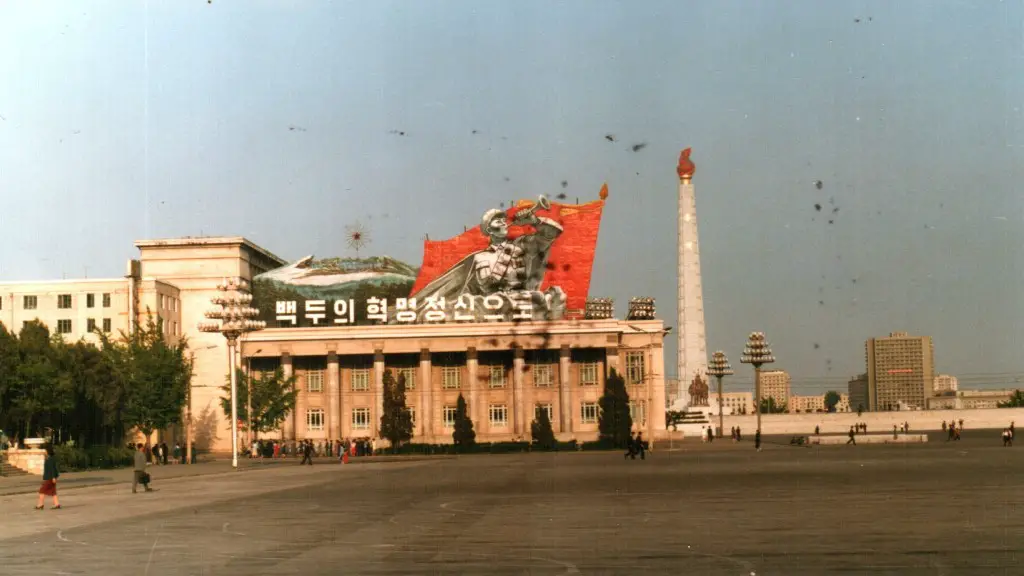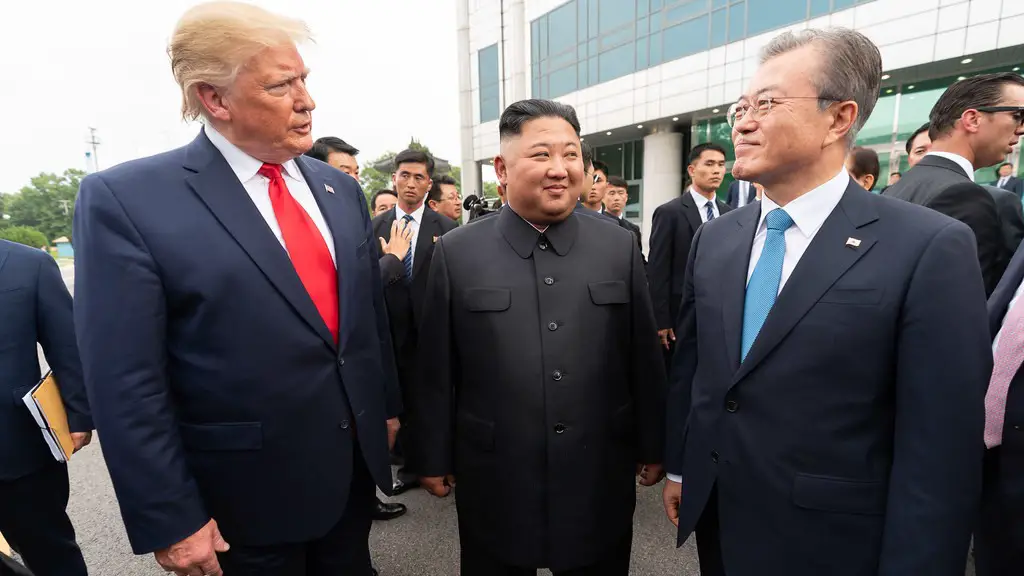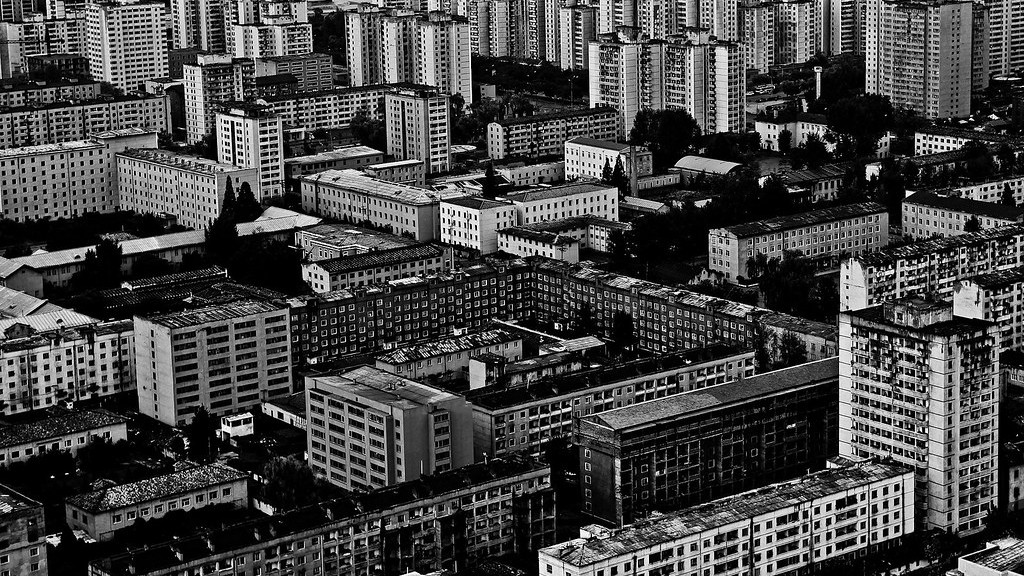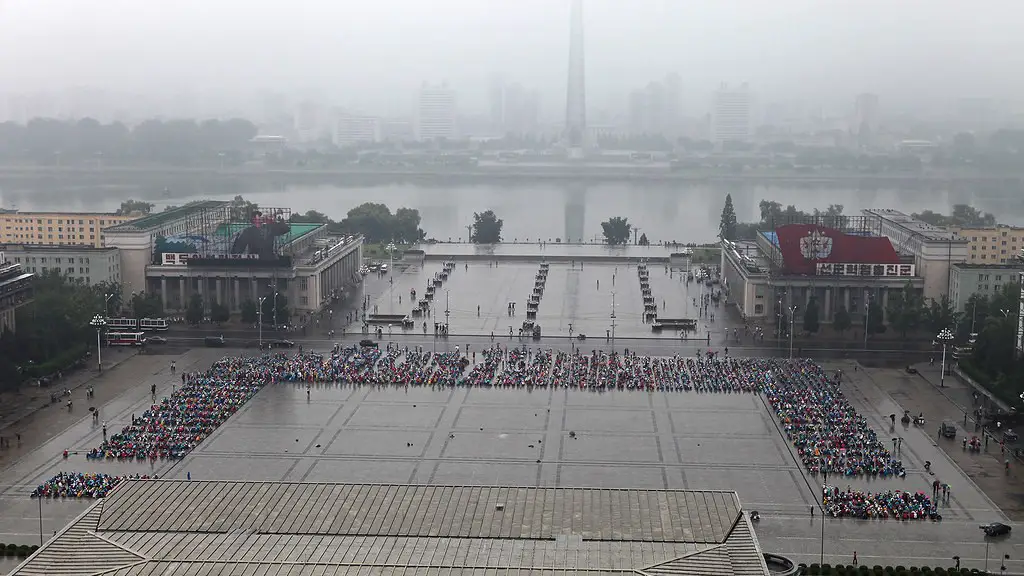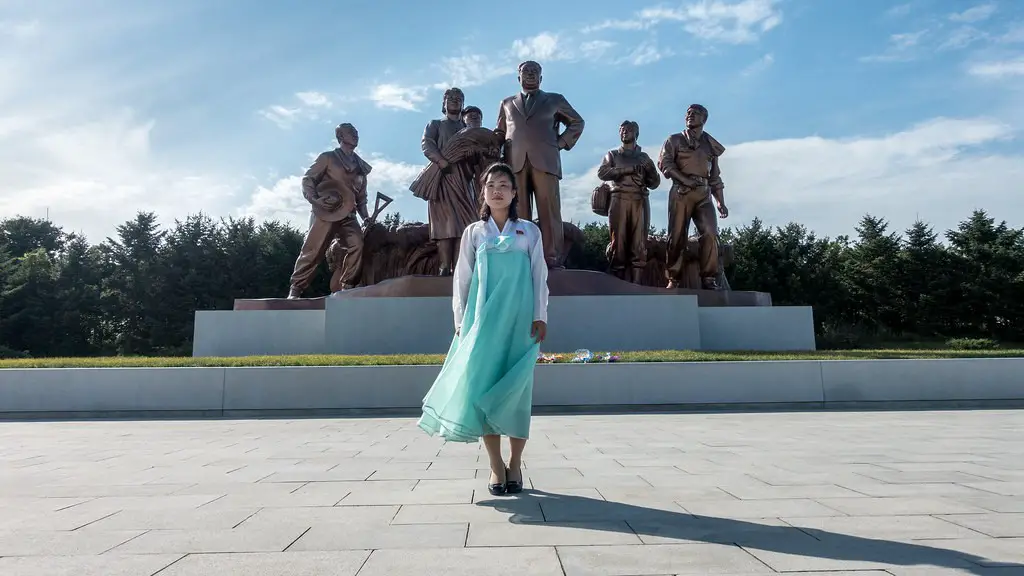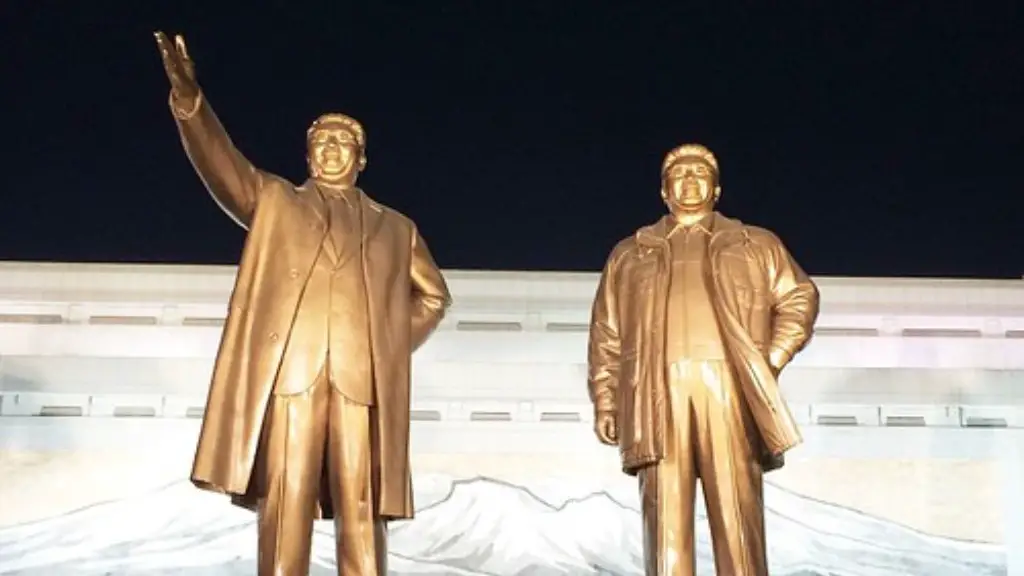Since the death of Kim Jong-il in 2011, North Korea has been under the leadership of his son, Kim Jong-un. While there have been some changes in the country under Jong-un’s rule, North Korea is still very much a dictatorship. The government controls all aspects of daily life and there is little freedom for the people. Dissent is not tolerated and those who speak out against the government are punished severely. The country is also isolated from the rest of the world, which makes it difficult to know what is really happening inside North Korea.
North Korea political system could be considered a dictatorship as the supreme leader has complete control over the country.
Is North Korea a republic or dictatorship?
The Democratic People’s Republic of Korea (DPRK or North Korea) is an authoritarian state led by the Kim family for 70 years. The government controls all aspects of life and the economy is centrally planned. The country is isolated from the rest of the world and its people are not allowed to travel freely. Conditions in North Korea are very poor and many people do not have enough to eat.
Freedom of movement is something that North Korean citizens are not typically afforded. Emigration and immigration are both strictly controlled by the government, making it difficult for North Koreans to travel both within and outside of their country. This lack of freedom can be quite limiting and frustrating for North Koreans who simply want to travel and see the world.
Who rules North Korea today
Kim Jong-un is the second of the three children of Ko Yong-hui and Kim Jong-il. His elder brother Kim Jong-chul was born in 1981, while his younger sister, Kim Yo-jong, is believed to have been born in 1987. Kim Jong-un was reportedly educated at the International School of Berne in Switzerland. Although the North Korean government has not confirmed this, several sources have reported that he attended the school under a false name. After returning to North Korea, he is believed to have attended Kim Il-sung University.
If you’re planning on traveling to North Korea, it’s important to be aware of the country’s strict laws about what you can bring into the country. Religious, pornographic, and political items are all illegal, and you must declare all published material and electronic devices when you arrive. It’s also illegal to knowingly or unknowingly possess items that breach North Korean law.
Is North Korea Communist yes or no?
The Workers’ Party of Korea (WPK) is the ruling political party of the Democratic People’s Republic of Korea (North Korea). It was founded in 1949 with the merger of the Workers’ Party of North Korea and the Workers’ Party of South Korea. The WPK also controls the Korean People’s Army.
The WPK is the ruling party of North Korea, with 97% of the people voting for its candidates in the 2012 parliamentary elections. It also controls the media and the military.
The WPK is committed to communism, and in 2009, all references to communism were removed from the North Korean Constitution. However, in January 2021, the WPK reasserted its commitment to communism.
The U.S. Department of State advises against travel to North Korea due to the continuing risk of arrest and long-term detention of U.S. nationals. The Department of State also advises that U.S. citizens exercise increased caution in North Korea due to the critical threat of wrongful detention.
Are North Koreans allowed to have phones?
Since then, North Koreans have been increasingly using smartphones, which offer many features that are not available on regular phones, such as access to the Internet, social media, and foreign media. However, there are many restrictions on what North Koreans can do with their smartphones, and the government monitors and censors phone calls and texts. In addition, North Koreans are not allowed to use international calling or data services, so they can only communicate with people inside the country.
North Koreans can travel abroad with permission from the government, much like in other Soviet, socialist, or Eastern Bloc countries. North Korea requires would-be travelers to obtain a passport and a visa, and to submit a travel application to the Ministry of Foreign Affairs. The application must be approved by the ministry, and the traveler must also have a sponsor in the country they are visiting.
Can North Koreans leave legally
It is believed that hundreds of thousands of North Koreans have fled the country in search of a better life, despite the risk of being caught and repatriated by the Chinese authorities. North Korean law states that leaving the country without permission is a crime of “treachery against the nation,” punishable by death. The 2014 UN Commission of Inquiry (COI) on human rights in the DPRK found Pyongyang committed crimes against humanity against those forcibly returned by China to North Korea. These findings underscore the desperate conditions that many North Koreans are fleeing, and the grave risks they face if repatriated.
Soju is a distilled rice wine that is traditionally vodka-like in its clear, colorless form. It usually has an alcohol content between 20-25% and is often compared to vodka in terms of taste and appearance. It is usually drunk neat, but can be mixed with fruit juice or other alcoholic beverages. Soju is the most popular alcoholic drink in North Korea, and is widely available throughout the country.
Is no one allowed in North Korea?
There are no set rules for who is allowed to travel to North Korea and who is not. However, South Koreans and journalists are usually the only ones who are denied entry. There have been a few exceptions made for journalists in the past, but not many.
Since the mid-1990s, North Korea has descended into darkness after the Soviet Union stopped supplying fuel to the country. The lack of light has made it difficult for people to do everyday activities, and has created an overall feeling of despair among the population.
Can Americans travel to Korea
Starting September 1, 2021, all US citizens traveling to Korea must have a valid visa or an approved Korea Electronic Travel Authorization (K-ETA) in order to enter the country. If you do not have either of these, you will not be able to enter Korea.
The North Korean government has been known to harshly punish any of its citizens who attempt to defect to another country. If these defectors are caught while still in China, they are typically repatriated back to North Korea where they often face incredibly harsh interrogations and punishments, including imprisonment in kwalliso prison camps or kyohwaso reeducation camps. In some cases, these defectors may even be sentenced to death. The human rights situation in North Korea is truly deplorable and these defectors often face terrible fates if they are caught by the authorities.
What states are communist?
The existing communist states in the world are in China, Cuba, Laos, Vietnam, and North Korea (DPRK). These countries have all implemented some form of socialism, and most have Communist Party control over their governments. While the economic systems in each of these countries differ, they all share some common characteristics, such as state ownership of the means of production and a centrally planned economy.
The country is culturally and economically isolated as many suffer from malnutrition and live in extreme poverty. Many North Koreans go to work every day on farms, in factories, and in the capital of Pyongyang.
Warp Up
Yes, North Korea is still a dictatorship.
Yes, North Korea is still a dictatorship. The country is ruled by a small group of people who have complete control over the government and the lives of its citizens. There is no freedom of speech or assembly, and people are only allowed to consume state-approved media. Citizens are also required to show loyalty to the state and its leaders, and they are not allowed to leave the country without permission.
